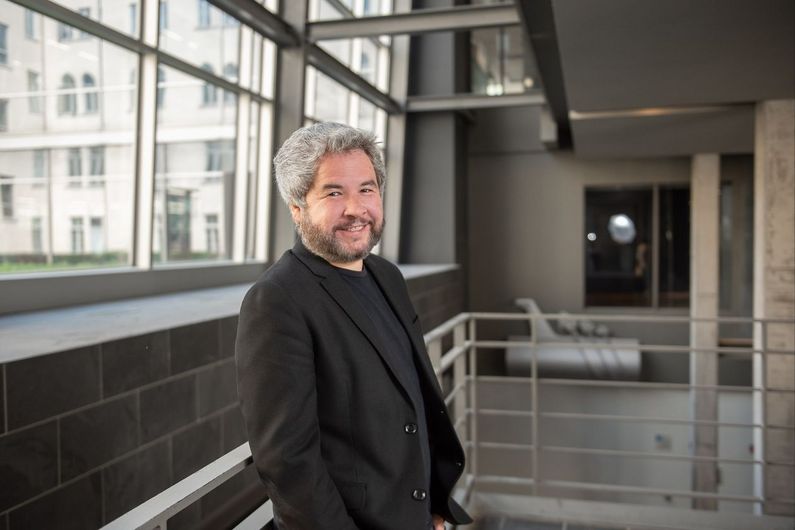In search of spatial justice
- UdeMNouvelles
10/04/2023
- Béatrice St-Cyr-Leroux
Stephan Kowal, a researcher interested in social and cultural issues in architecture, has joined the Faculty of Environmental Design as an assistant professor.
Stephan Kowal has always been fascinated by architecture. What attracts him, he says, is the discipline’s ability to represent and reshape the built environment, to cast a critical and poetic gaze on the world.
The newly appointed professor at Université de Montréal’s School of Architecture is no newcomer to the university. He earned a bachelor’s degree and an individualized doctorate in architecture from UdeM, and later taught here as a practical instructor and lecturer.
“I have a strong sense of connection and attachment to UdeM and to my city, Montreal,” said Kowal, who has practiced in the United States and taught at Carleton University in Ottawa. “I was born on the mountain, so I’m coming back to my roots!”
Kowal is enthusiastic about continuing his well-established career at his alma mater and happy to be involved in training future generations of architects from here and abroad. And he looks forward to sharing his holistic vision of architecture.
Mapping spaces and their influences
Since completing his doctorate, Kowal has taken an interest in the use of mapping in urban architecture to represent not only physical spaces but also the political, economic and social factors that act on them.
“Mapping allows us to incorporate all kinds of information that is less standardized than in an architect’s plan,” he explained. “It lets us look beyond the building itself and get an idea of the environmental factors that can influence its design, as well as the community’s cultural and social values. To produce designs that are relevant, we should avoid generalities and attend to the specifics of the communities involved.”
Kowal believes we need to look at the big picture and align urban planning with a social vision of better urban living. His ambition is to set up a mapping observatory at UdeM to bring together all efforts in this area.
“It’s a social goal, a quest for spatial justice driven by critical thinking,” Kowal explained. “It calls on us to look at a situation from all angles to fully understand it, to grasp all the implications, benefits and consequences.”













